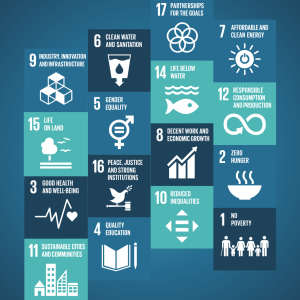Indikatoren in dieser Dimension analysieren, inwieweit Migrantinnen und Migranten hinsichtlich des Zugangs zu grundlegenden sozialen Diensten wie Gesundheit, Bildung und soziale Sicherheit den gleichen Status wie Bürgerinnen und Bürger haben. Es beschreibt die Rechte von Migrantinnen und Migranten auf Familienzusammenführung, Arbeit, Aufenthalt und Staatsbürgerschaft. Die Ratifizierung der wichtigsten internationalen Konventionen fällt ebenfalls in diesen Bereich.main.
Indikatoren in dieser Dimension bewerten die institutionellen, rechtlichen und regulatorischen Rahmenbedingungen der Länder im Zusammenhang mit Migrationspolitik. Dimension 2 beinhaltet auch das Vorhandensein von nationalen Migrationsstrategien, die mit Entwicklungspolitik und -ansätzen im Einklang stehen, sowie die institutionelle Transparenz und Kohärenz in Bezug auf Migrationsmanagement. In diesem Bereich wird auch untersucht, inwieweit Regierungen Migrationsdaten erheben und verwenden.
Diese Dimension konzentriert sich auf die Bemühungen von Ländern, in migrationsbezogenen Fragen mit anderen Staaten und einschlägigen nichstaatlichen Akteuren, einschließlich Organisationen der Zivilgesellschaft und des Privatsektors, zusammenzuarbeiten. Kooperation kann zu Verbesserungen der Regierungsführung führen, indem Standards angeglichen und angehoben, der Dialog intensiviert und Strukturen der Bewältigung von Herausforderungen geschaffen werden.
Diese Dimension umfasst Indikatoren für die Politik der Länder zur Steuerung des sozioökonomischen Wohlergehens von Migrantinnen und Migranten, z.B. die Anerkennung der Bildungs- und Berufsqualifikationen von Migrantinnen und Migranten, Bestimmungen zur Regelung der Studentenmigration und das Bestehen bilateraler Arbeitsabkommen zwischen Ländern. Die Indikatoren konzentrieren sich gleichermaßen auf Maßnahmen und Strategien im Zusammenhang mit dem Engagement der Diasporamitglieder und den grenzüberschreitenden Geldtransfers von Migrantinnen und Migranten
Diese Dimension befasst sich mit der Art und dem Grad der Bereitschaft von Ländern, wenn sie mit Mobilitätsdimensionen von Krisen konfrontiert sind, die entweder mit Katastrophen, der Umwelt und/oder Konflikten zusammenhängen. Die Fragen werden verwendet, um die Prozesse für Staatsangehörige und Ausländer sowohl während als auch Katastrophen zu ermitteln, einschließlich der Frage, ob humanitäre Hilfe für Migrantinnen und Migranten genauso verfügbar ist wir für Bürgerinnen und Bürger.
Diese Dimension analysiert den Ansatz der Länder zum Migrationsmanagement bezüglich Grenzkontroll- und Grenzschutzmaßnahmen, Zulassungsvoraussetzungen für Migranten, Vorbereitung und Flexibilität bei erheblichen und unerwarteten Wanderungsbewegungen sowie die Bekämpfung des Menschenhandels und des Menschenschmuggels von Migrantinnen und Migranten. Es werden auch die Bemühungen und Anreize zur Unterstützung der Integration der zurückkehrenden Staatsbürgerinnen und -burger bewertet.
This country Profile describes examples of well-developed areas of the Republic of Mozambique’s governance structures and areas with potential for further development, as evaluated through the six domains of the Migration Governance Indicators (MGI). These address migrants’ rights, a “whole-of-government” approach, partnerships, socioeconomic well-being of migrants, the mobility dimensions of crises, and safe and orderly migration.
Click the icons on the wheel to explore the key findings.
The Migration Governance Indicators (MGI) initiative is a policy-benchmarking programme led by the International Organization for Migration (IOM) and implemented with research and analysis from the Economist Impact. Funding is provided by IOM Member States.
Migration Governance: examples of well-developed areas
- Regular migrants residing in Mozambique have equal access to public health-care services as Mozambican citizens, in accordance with Law No. 23 of 2022 on the Foreigners Statute.
- Basic primary and secondary education in Mozambique is provided free of charge, irrespective of migration status, as per the principles outlined in Law No. 18 of 2018 on the Revision of the National Education System (Sistema Nacional de Educação, SNE).
- Mozambique has agreements with Brazil (2017) , Portugal (2018), and Cabo Verde (2023) to ensure the portability of social security entitlements, including pensions, allowing workers to retain their benefits when returning home.
- Mozambique's Civil Registry Code (Law No. 12 of 2004, amended 2018) allows migrants to register civil events using valid foreign documents, without requiring Mozambican ID.
Areas with potential for further development
- The establishment of systems to formally record nationals living abroad is an area with potential for further development, with current efforts relying on voluntary registration through consulates and diaspora mapping.
- There is no specific strategy for addressing hate crimes, violence, xenophobia, and discrimination against migrants.
Migration Governance: examples of well-developed areas
- The Ministry of the Interior (MINT) is responsible for migration-related policy design and implementation in Mozambique, as established by Ministerial Diploma No. 68 of 2001.
- Mozambique has two interministerial coordination mechanisms for migration issues: the National Reference Group for Child Protection and Combating Trafficking in Persons and Irregular Migration, and the Migration Management Steering Committee.
- The National Institute for Mozambican Communities Abroad under the Ministry of Foreign Affairs and Cooperation assists Mozambican communities abroad with emigration, repatriation, education, and information, as per Decree No. 44 of 2023.
- The MINT established the Coordinating Council in 2011, which annually coordinates with local-level authorities for agenda-setting and policy implementation, as per Article 16 of Ministerial Diploma No. 68.
- The National Institute of Statistics collects health and migration data, including immunization, malaria, HIV/AIDS, remittances, and money transfers, with the latest Family Budget Survey data from 2022 published in July 2023.
Areas with potential for further development
- Establishing a national migration strategy remains a key area for further development in Mozambique. As of September 2024, Mozambique's draft Diaspora Policy and Implementation Strategy, focused on protecting the rights of Mozambicans abroad and promoting their engagement, awaits approval by the Council of Ministers.
- Establishing a coordination mechanism to compile, integrate, and disseminate migration data from different government agencies is a key area with potential for development in Mozambique.
Migration Governance: examples of well-developed areas
- Mozambique actively engages in regional consultative processes such as the Migration Dialogue for Southern Africa (MIDSA) that is part of the Southern African Development Community (SADC) and the Pan-African Forum on Migration (PAFOM).
- In 2023, Mozambique signed MoUs with the United Arab Emirates, Cabo Verde, and Portugal to ensure ethical recruitment, social security portability, and labour mobility.
- Mozambique has engaged in bilateral migration negotiations, discussions, and consultations, including visa exemptions with Venezuela, Rwanda, Thailand (2018), and Egypt (2019), border control support from Japan (2022), and 24-hour border operations with Eswatini (2022) to boost trade and movement.
- Members of Mozambique's diaspora are actively involved in development policies, with collaboration promoted by the National Institute for Mozambican Communities Abroad (Decree No. 44 of 2023), and the 2014 Diaspora Engagement Strategy incorporated into the 2023 National Diaspora Policy, currently awaiting approval as of May 2024.
Areas with potential for further development
- Promoting formal intraregional mobility through Regional Consultative Processes or interregional consultative forums is a key area with potential for further development.
- Increasing engagement with civil society organizations in agenda-setting and implementing migration-related programmes at the local level is another key area for development. Ad hoc consultations occur, limited to specific issues such as human trafficking.
Migration Governance: examples of well-developed areas
- Migrant workers’ skills and qualifications are considered in granting work permits or visas under the New Labour Law (Law No. 13 of 2023).
- Mozambique has formalized accreditation criteria for recognizing foreign qualifications, overseen by the National Institute of Exams, Certifications and Accreditations under the Ministry of Education and Human Development.
- Mozambique participates in the African Continent Qualifications Framework (2019), through the National Council on Quality Assurance in Higher Education (Conselho Nacional de Avaliação da Qualidade, CNAQ).
- Nationals working abroad are protected through the New Labour Law and Decree No. 16 of 2018, which governs private employment agencies, while 32 diplomatic missions provide consular support and services.
Areas with potential for further development
- Mozambique does not have a national assessment for monitoring the labour market demand for immigrants or the domestic labour supply and the impact of emigration on the domestic labour market.
- Promoting the financial inclusion of migrants is a key area for development, as Mozambique's National Strategy of Financial Inclusion (ENIF) 2016–2022 addresses access to financial services but lacks specific measures tailored for migrants.
Migration Governance: examples of well-developed areas
- Mozambique actively engages in regional frameworks like the Kampala Convention (2009), Southern African Development Community (SADC) Climate Change Strategy and Action Plan (CCSAP) (2015) and the annual Southern Africa Regional Climate Outlook Forum (SARCOF).
- The National Institute of Disaster Management and Risk Reduction (INGD), under Law No. 10 of 2020, coordinates Mozambique's disaster risk reduction efforts, implementing the Director Plan for Disaster Risk Reduction 2017–2030 and the Plan for Financial Protection against Disasters 2022–2027 to enhance disaster resilience and recovery.
- Mozambique's disaster management framework includes measures to prevent displacement, protect at-risk populations, and promote climate-resilient housing, as outlined in Law No. 10 and the Internal Displacement Management Policy and Strategy (2021).
- INGD collects and publishes disaster displacement data, including IDPs, resettled families, and disaster impacts. Data are disaggregated by region, sex, and age.
- Mozambique's Annual Contingency Plan 2022–2023 includes provisions for disaster response, resettlement, preparing safe zones for displaced families, and ensuring local participation in resettlement decisions.
Areas with potential for further development
- Mozambique lacks a harmonized emergency management framework that address the needs of migrants before, during and after emergencies and disasters.
- There are no specific provisions to make exceptions to the immigration procedures for migrants whose country of origin is experiencing a crisis.
Migration Governance: examples of well-developed areas
- Mozambique has two policy documents addressing the issues relevant to returning migrants: the Social Action Policy (2017) and the Mozambican Diaspora Policy (2023).
- The Ministry of Gender, Children and Social Action (MGCAS) protects migrant, unaccompanied, and displaced children, upholding Law No. 7 of 2008 and the 2021 Internal Displacement Management Policy.
Areas with potential for further development
- Mozambique lacks an effective system to monitor visa overstays; monitoring is done on an ad hoc basis or by border officials.
- There are general measures in place to combat labour exploitation which apply to migrants but are not specific to them.
2024 September




